- News
- Reviews
- Bikes
- Components
- Bar tape & grips
- Bottom brackets
- Brake & gear cables
- Brake & STI levers
- Brake pads & spares
- Brakes
- Cassettes & freewheels
- Chains
- Chainsets & chainrings
- Derailleurs - front
- Derailleurs - rear
- Forks
- Gear levers & shifters
- Groupsets
- Handlebars & extensions
- Headsets
- Hubs
- Inner tubes
- Pedals
- Quick releases & skewers
- Saddles
- Seatposts
- Stems
- Wheels
- Tyres
- Tubeless valves
- Accessories
- Accessories - misc
- Computer mounts
- Bags
- Bar ends
- Bike bags & cases
- Bottle cages
- Bottles
- Cameras
- Car racks
- Child seats
- Computers
- Glasses
- GPS units
- Helmets
- Lights - front
- Lights - rear
- Lights - sets
- Locks
- Mirrors
- Mudguards
- Racks
- Pumps & CO2 inflators
- Puncture kits
- Reflectives
- Smart watches
- Stands and racks
- Trailers
- Clothing
- Health, fitness and nutrition
- Tools and workshop
- Miscellaneous
- Buyers Guides
- Features
- Forum
- Recommends
- Podcast
feature
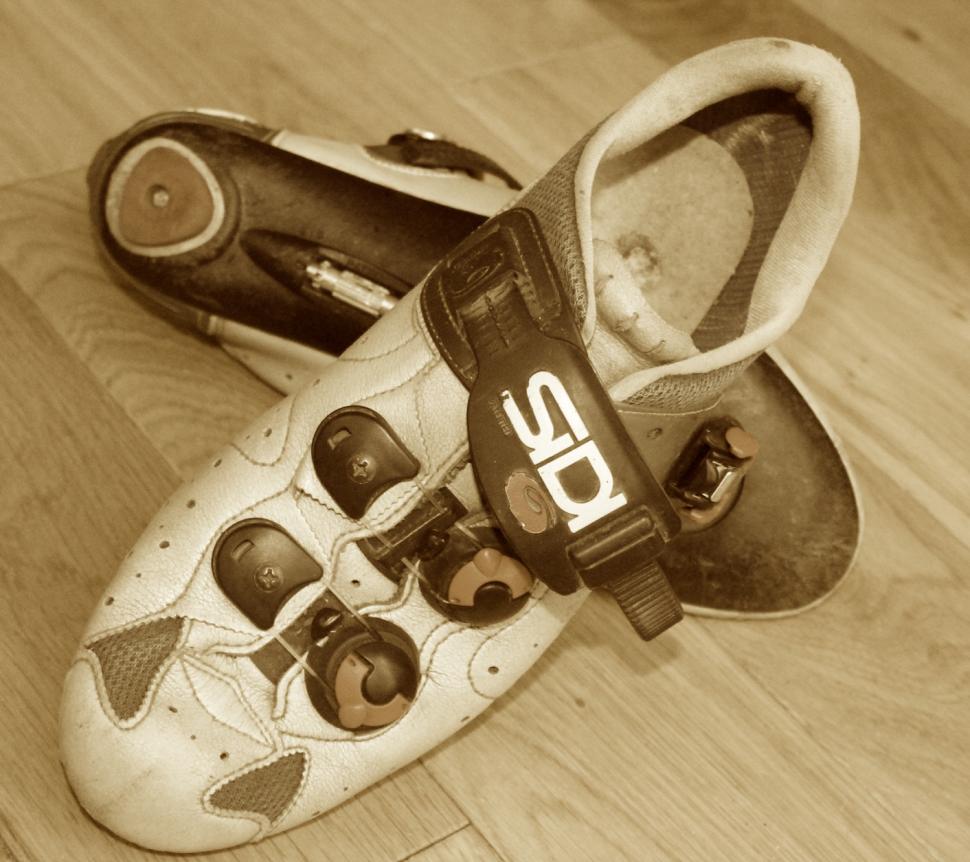 old_sidis_sepia_-_1.jpg
old_sidis_sepia_-_1.jpgVideo: When should you get new cycling shoes?
When should you replace your cycling shoes? When you fancy a new pair, they're so minging you can't face them any more, or when your current ones have worn out would be the obvious answers, but how do you know when they’ve worn out? Clearly, if they’re falling off your feet you’re going to benefit from something new, but sometimes these things can sneak up on you so we asked the experts for the signs that say it’s time for a change.
First up, here's our Liam with the good word on replacing shoes, and making them last longer.
“I’ve seen shoes during bike fits that look as if they've been used for running a marathon and the customer still insisting they're good to use,” says Jez Loftus of Trek, owners of the Bontrager brand that includes a large range of shoes.
“In general it’s a trade off between weight and durability. A fancy pair of lightweight summer climbing shoes probably won’t last long if you use them on gravel or in winter conditions.
“Wear can depend heavily on the rider and shape of their feet,” says Jez. “From the bike fits I’ve done, a rider who has mastered souplesse [which in this context refers to the suppleness/smoothness of the pedal stroke] and the art of a perfect pedalling style is usually very light on their shoes, and kit. The chopper, on the other hand, just devours kit!”
>>Find out about the bike kit bio-hazards that cyclists don't like to talk about
So how do you know when it’s time to pension off one pair of shoes and buy a new pair?
“It depends on the amount of riding that’s being done, but road shoes should last many seasons if you avoid walking on abrasive surfaces and keep the shoes clean and dry them properly inside and out when wet,” says Peter Curran, Giro’s category manager for footwear, softgoods and apparel.
“Generally, road cycling shoes are used in a very specific, predictable way, unlike mountain bike shoes, where riders are subject to more environmental factors, such as dirt, mud, rock strikes and wear and tear on the sole due to hiking.”
>>Read about the best performance road cycling shoes
It’s the closure system that most often fails first.
“Mechanised closure systems have gotten more complex to allow a rider to customise the fit of their shoes in targeted areas,” says Peter Curran. “These are the most used part of the shoes, and systems can wear over time. Fortunately, with the added complexity comes serviceability, so if your closure system needs repairs, parts are available and easy for a rider to install.”
Boa closures, for instance, which you’ll find on some shoes from Giro and many other brands, are guaranteed for the lifetime of the product on which they are integrated, and you can get spares for many other systems online or through your local bike shop.
>>Find out all about wide-fit cycling shoes
The sole is the other part that’s most susceptible to damage. Cycling shoe soles are most often made from glass-fibre reinforced nylon or carbon-fibre and road shoes don't usually have a protective layer to prevent damage when you walk.
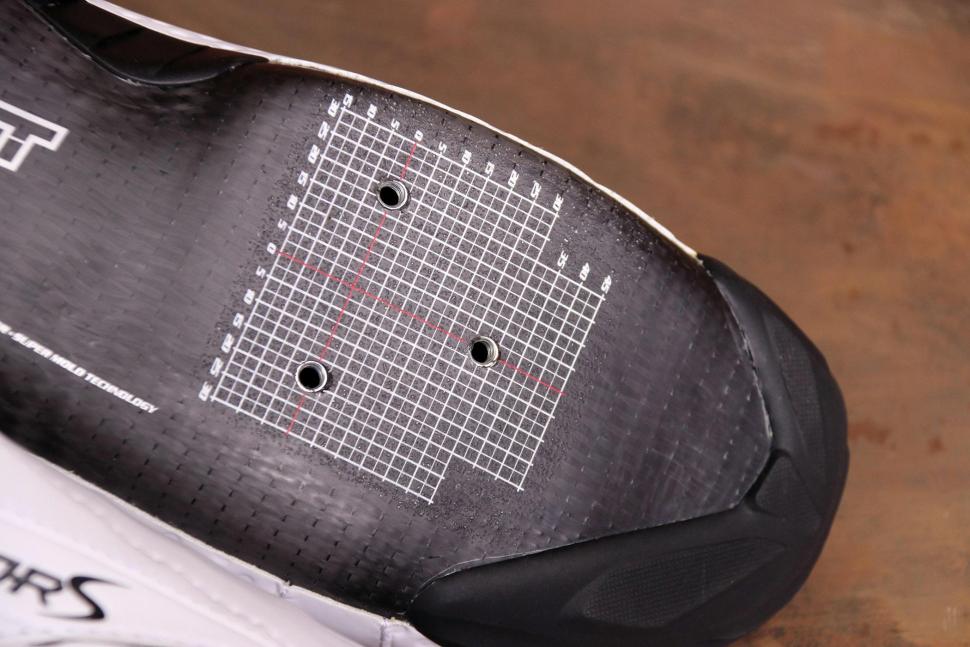
“If the cyclist refrains from walking over rocks and pebbles it will extend the life of the sole, but carbon-fibre is susceptible to wear like anything else,” says Bont’s chief executive officer Steven Nemeth. “Shoes, including carbon soled shoes, need to be looked after like all equipment. You wouldn’t drag your bike frame across sharp rocky surfaces, so why would you do it to naked carbon soles of shoes?”
If your road shoes have died because you've worn out the soles through walking in them, think about replacing them with a pair of touring or mountain bike shoes that take two-bolt cleats that are recessed into soles with tread and a bit of give.
>>Check out all of our shoe reviews
Jez Loftus of Trek says, “You see some soles fail across the cleat bolt holes, especially with shoes that are used for off-road riding which generally have a tougher life.
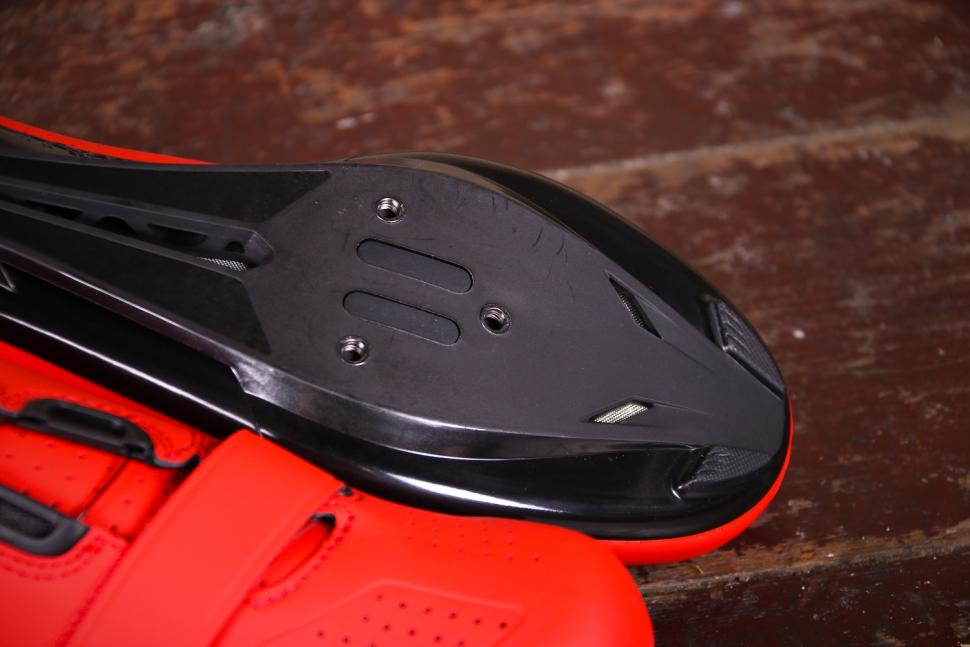
“If you’re doing pro mileage in a pair of nylon soled shoes you should really think about upgrading to something stiffer, but whether they’re made from nylon or carbon, the soles should last for years if you keep walking to a minimum.”
What about the uppers? They don’t have to handle contact with the ground – not unless things go horribly wrong – but they’re not made from such hard-wearing materials either.
“There can be some stretch in the uppers over time, but modern road cycling shoes don’t experience the dynamic forces that other athletic footwear is subjected to, so there’s much less fatigue on the uppers,” says Giro’s Peter Curran. “Any material stretch would be from the repeated tightening of the shoes.”
Bont’s Steven Nemeth says, “Our top models like the Vaypor series as well as the Crono and Zero+ all have a monocoque construction under the upper layer (above) that stops them from stretching.”
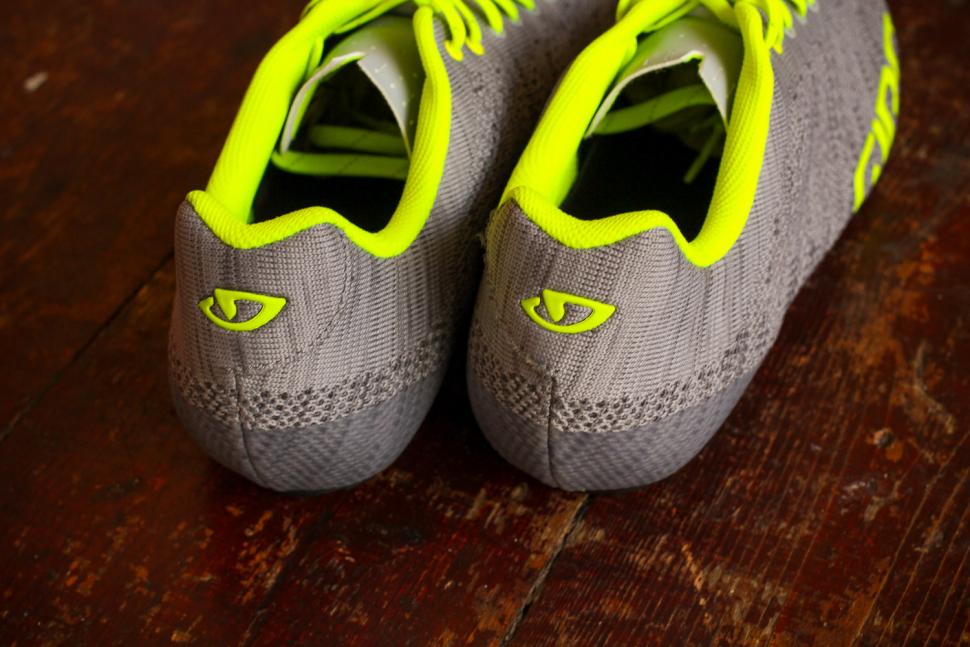
The heel counter – the insert that wraps around the back of your foot and defines the shape of the heel cup, sometimes internal and sometimes external) – should last the lifetime of your shoe as long as you loosen the closure system fully when you put it on. Don’t try to wiggle your foot inside while the shoe is done up.
If you want to make your shoes last as long as possible, dry them out after a wet ride by stuffing them with newspaper – yes, the old way is still the best. This absorbs moisture while helping them keep their shape. Don’t be tempted to use a fire, radiator or hairdryer because extreme heat can damage the materials and adhesives.
Cool and dry storage is best for longevity. Don't leave your shoes festering in the bottom of a kit bag. Completely removing any overshoes you've used – as opposed to pushing them down just far enough to get your feet out – allows your shoes to dry out more quickly.
>>Read about the best cheap cycling shoes.
The best way to clean your shoes depends on the exact materials used, so consult the manufacturer’s instructions, but in many cases you just need to wipe off the dirt and grime with a damp cloth or sponge. Don’t use strong detergents, solvents or abrasive pads, and don’t put them in the washing machine. People certainly do that and swear by this method, but although the shoes might come out clean, you run the risk of damaging them irreparably.
Mat has been in cycling media since 1996, on titles including BikeRadar, Total Bike, Total Mountain Bike, What Mountain Bike and Mountain Biking UK, and he has been editor of 220 Triathlon and Cycling Plus. Mat has been road.cc technical editor for over a decade, testing bikes, fettling the latest kit, and trying out the most up-to-the-minute clothing. He has won his category in Ironman UK 70.3 and finished on the podium in both marathons he has run. Mat is a Cambridge graduate who did a post-grad in magazine journalism, and he is a winner of the Cycling Media Award for Specialist Online Writer. Now over 50, he's riding road and gravel bikes most days for fun and fitness rather than training for competitions.
Latest Comments
- BikingBud 3 min 29 sec ago
And relevant to the reminiscence of the mini, here we see the reality of the fashion driven size increase in the classic small car.
- mark1a 5 min 12 sec ago
This simply isn't true. I've been running radar lights for 10 years now. I cycle mostly on rural roads, I get notified of approaching vehicles up...
- Rendel Harris 2 hours 34 min ago
Genuinely puzzled as to how you've extrapolated that from what I said. Care to explain?
- Pub bike 4 hours 45 min ago
He is up against the global trading system, which has obviously been in the news a lot lately. Framebuilders in other countries can undercut him,...
- David9694 6 hours 18 min ago
Stouport residents bemoan huge traffic queues through town...
- rookybiker 17 hours 12 min ago
The trailer seems to connect to both ends of the rear axle. Can it do tight corners without dragging the tyre sideways?
- Destroyer666 18 hours 8 min ago
Have you owned Bont shoes? In my experience even the widest Lake shoes have had a bizarre form of narrowing way too much in the toe area. But the...
- froze 18 hours 36 min ago
Not sure if this is possible, but this news letter goes out all over the world, and some places like Decathlon does not send stuff to America, in...
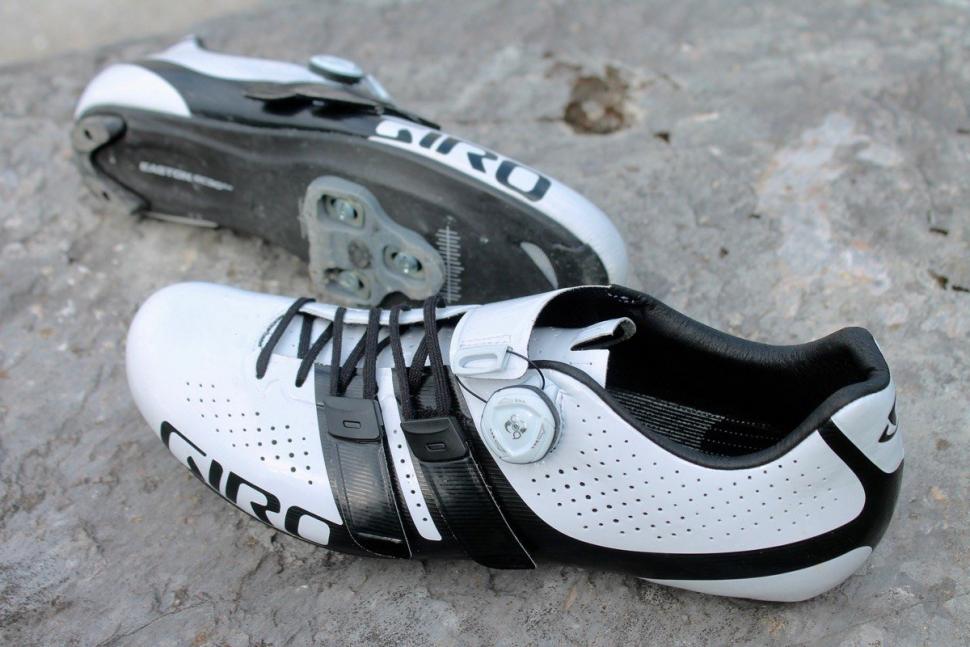

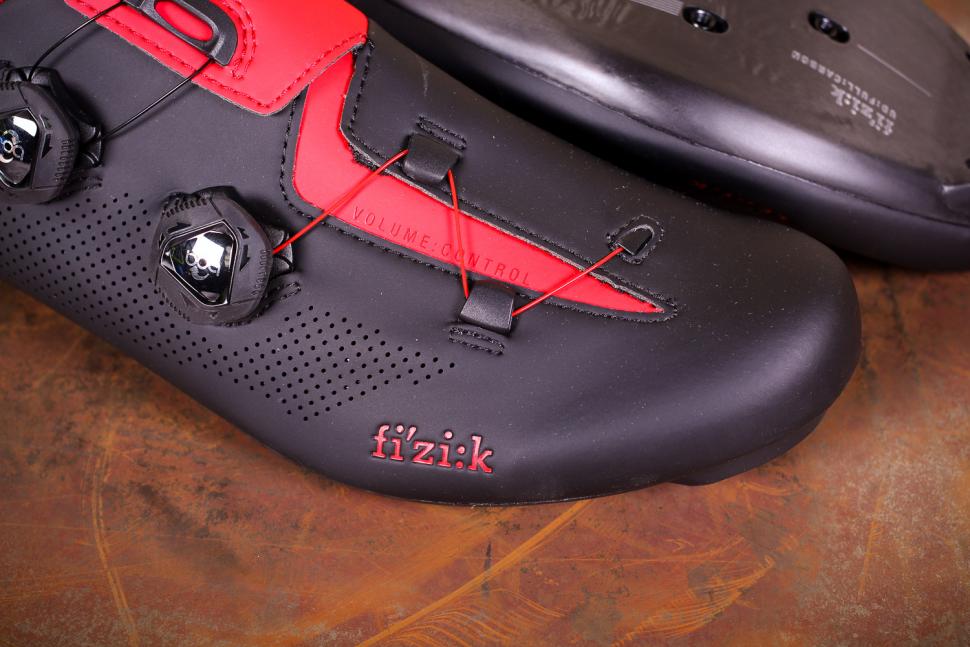
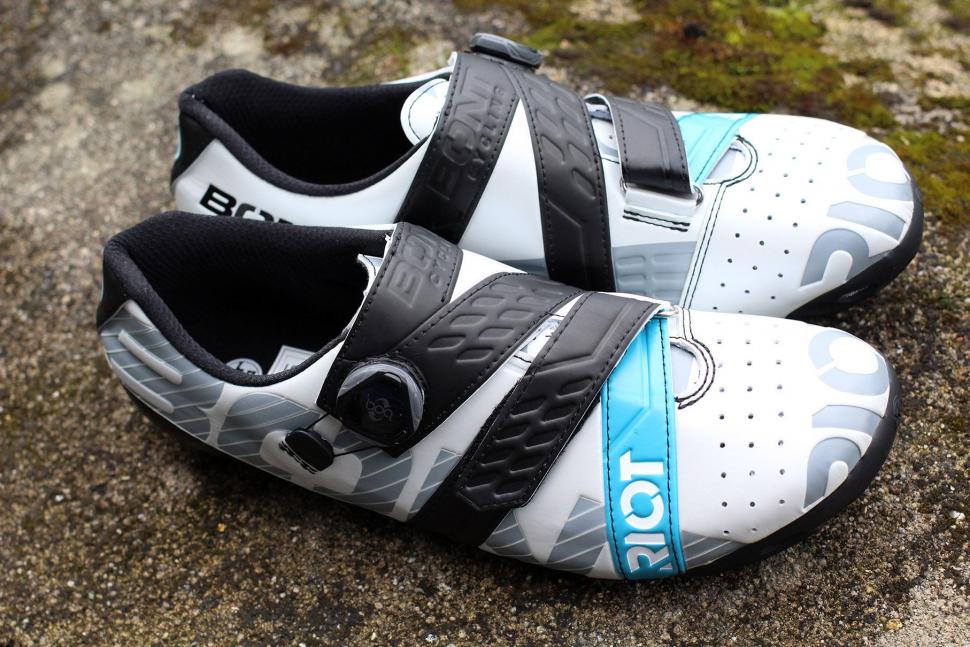

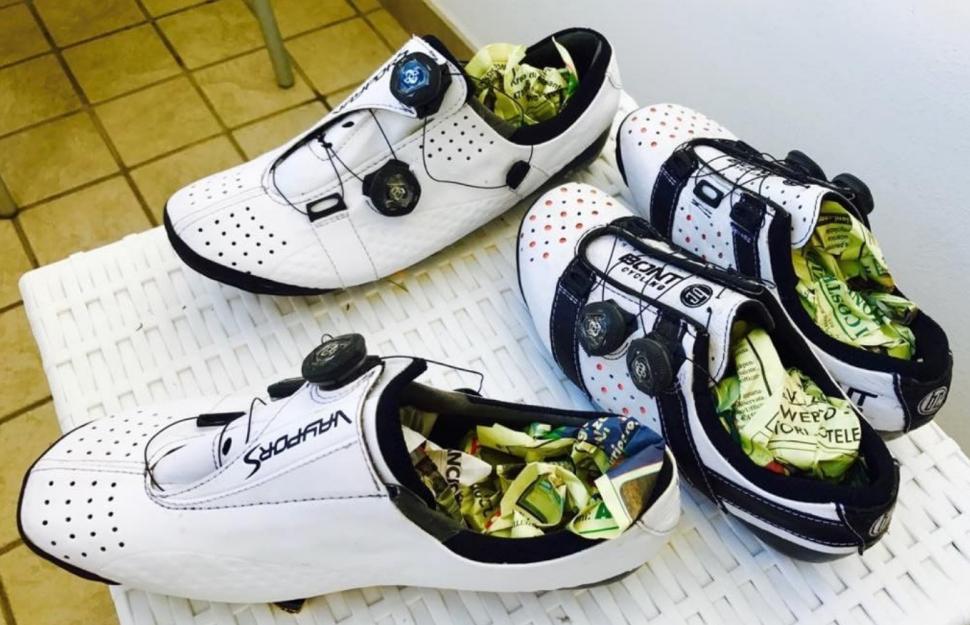
Add new comment
22 comments
I have a pair of pretty beat up Shimano XC70s from 2016 or 2017. Both of them are held together by black gaffer tape to some degree but they still fit and have many miles to go.
Ive recently just swapped out the buckles too as the spring in them broke (P/N: ESMSHLOLBLSS) with ones i bought years ago but new spares are few and far between and not really worth the money when found so i'll eventually be forced to get a new pair when the clips on these break/wear out.
I cant even remember what i paid for these shoes. Somewhere between £89-120 but the sole is super stiff which i love and ive not completely worn out the treads into sandals just yet. If i was to get anther year or two out of this pair id say it was money well spent.
Just this winter I've retired a pair of Adidas MTB shoes that have been my winter pair. They were £20 or so and bought from a stall in the early days of Manchester velodrome. Maybe 20 years of service ? Excellent value.
"Whenever you bloody want" is the answer.
Oh dear.
I just bought a new pair of Sidi's. The last two pairs lasted so well. On one pair the toe strap broke, I was thinking of trying to get a replacement but the screws holding the Look cleats have not only seized up but the slot on the head is almost hammered flush. So hence the new pair, and I had to but Look Keos. The shoes are Genius 2's and I suspect that I got them back in the 1990's because Indurain wore them.
I think I got my money's worth out of them.
Don't bother stuffing your wet shoes with newspaper, they'll dry more slowly like that
I find for the first 1/4 hour it gets excess moisture out, but yes, any longer just makes them fester
I recommend using the FT. It's a tip I got from my Granny. For some reason the Pink paper seems really good at drawing out the moisture. My running shoes from this morning were dry after an hour or so even though the paper was soaking wet.
When the paramedics cut you out of your old pair.
The correct answer is "when someone builds a genuinely waterproof flat pedal winter boot" in my case...
Come to the SPD darkside Kil0ran.....COOOMMMEE
I ride SPDs most of the time - just not for the knarlier bits of MTB I do now. And, dare I say it, I finds flats with decent pins more secure and comfortable than SPDs, to the point I've started wearing my gravity shoes on road rides. I've got Deore XT T8000 pedals on my road bike which are pins one side, SPD the other.
If you can't get out of that habit, get into the habit of unclipping with your foot at 2 o'clock, so that your heel swings into the empty frame triangle rather than your back wheel.
Stupidly, I am inthe habit of twisting my ankle in to the wheel, rather than away from it, hence my ankle brushes the spokes. Daft!
something is really not right if your foot hits the spokes when you unclip.
Or if your foot hits the spokes at any time, under any circumstance
Annoyingly I can't get out of my habit of unclipping my right foot and not the left (always have done, always will...) which means the inside heel area of my right shoe is sliced away by the spokes, long beofre any other part of the shoe is worn...
My S-Works 5s died after four years due to the sole delaminating at the front. They were my only pair of shoes, so got a lot of use, including commuting in all weathers (with toe covers). I've just replaced them with a pair of S-Works 6, which are even more comfortable and look to have a more hard-wearing heel pad.
The Boas are the weak point. I went through 10 or 12 of them on my first pair and the design never seems to get updated. At least they're free and simple to change.
I've got a pair of Giro Factors that have done a fair mileage in the 3+ years I've had them. Fit really well and very comfy, but both ratchet straps have broken to the point there's only just enough strap left to get them fastened over winter socks. Don't know if they're replaceable - maybe Peter Curran could advise?
I've had my Specialized S-Works for 5 years and still going strong, I've replaced the heel lugs a few times and the boa dials a couple of times though.
Or just buy Sidi's...
I find that the sole tends to go first especially with shoes that do not have replaceable hell pads, as Sidi provides, but Shimano does not.
I have therefore developed a system for Sidi-fying my Shimano shoes, providing them with replaceable heel pads that I make out of rubber. This means that not only do my Shimano carbon sole shoes not wear out, but I can also pick up "junk" carbon-sole Shimano shoes, with worn down heel pads/heels, cheaply on ebay.
The process is to grind down the height of a claw nut
https://www.flickr.com/photos/nihonbunka/24285288867/
like this
https://www.flickr.com/photos/nihonbunka/25279325068/
and then drill a hole in the sole at the hell and bang the shortned
claw nut into the sole from the inside under the insole. Then
attach a piece of rubber to the sole with a cleat bolt like this...
https://www.flickr.com/photos/nihonbunka/24285328197/
If the heels are already worn then sometimes I patch them with carbon fibre first
https://www.flickr.com/photos/nihonbunka/32857778813/
Now everyone will Sidi-fy their Shimano shoes and I wont be able to pick them up cheap on ebay any more but, it is okay since I have about 4 pairs and they last a looong time.
The same technique can be used to replace cleat nuts which also sometimes wear out.
I just re-build the pads with SuGru, or similar.
Having to replace my Specialized MTB shoes at the moment. Nothing wrong with them for pedalling, but the tread on the soles has perished and is crumbling.
Velcro closures don't last forever, but you can stitch a new bit on - ratchet ones seem the longest lasting and easiest to replace.